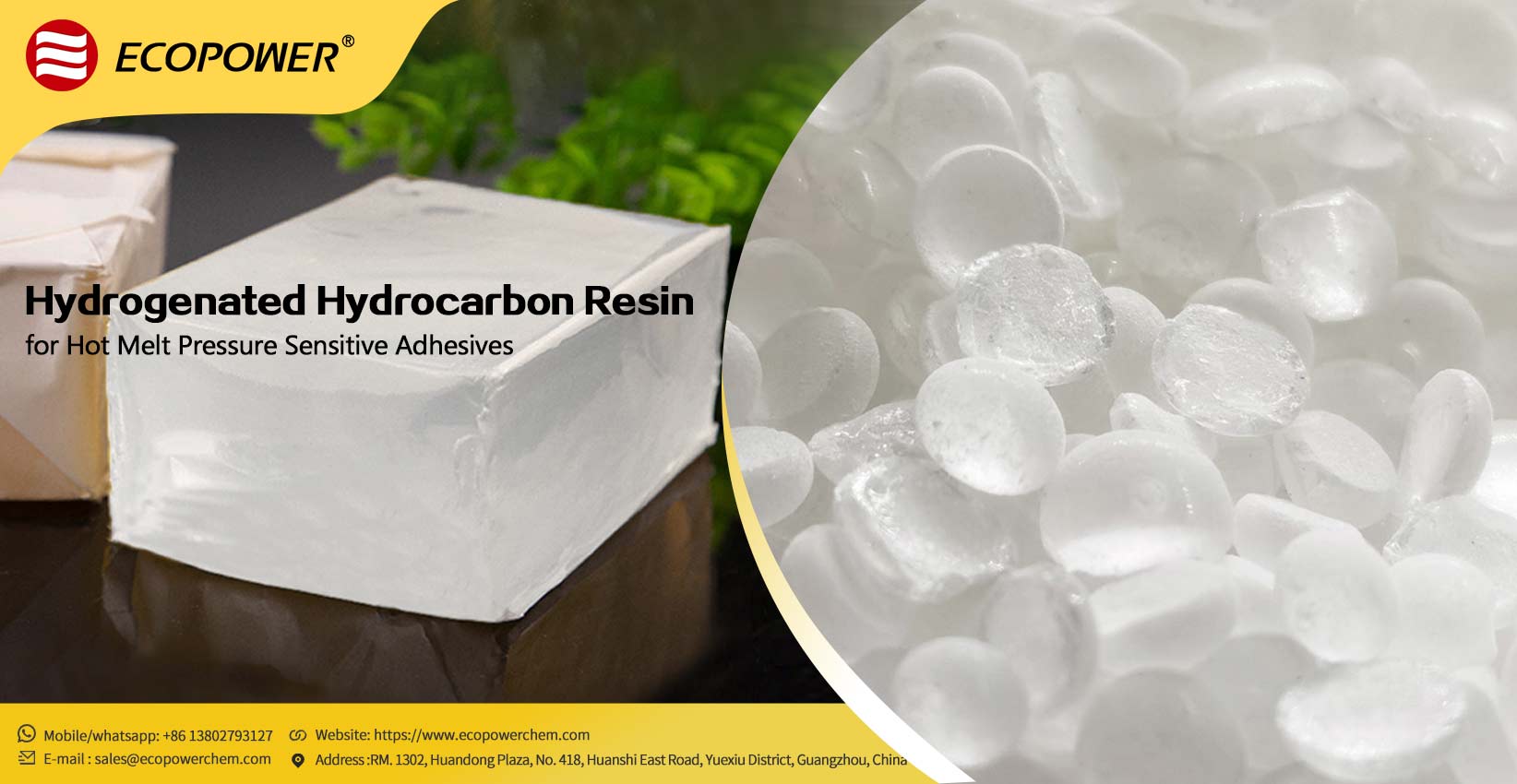 Whatsapp us
Whatsapp us
Hydrierte Kohlenwasserstoffharze haben sich in der Klebstoffindustrie, insbesondere für Schmelzhaftklebstoffe (HMPSA), als äußerst gefragtes Material erwiesen. Diese Harze werden durch Hydrierung ungesättigter Kohlenwasserstoffe aus Erdölharzen hergestellt und ergeben Produkte mit verbesserter Farbgebung, Geruchs- und Witterungsbeständigkeit. In diesem Artikel befassen wir uns eingehend mit den Eigenschaften, Anwendungen und Spezifikationen hydrierter Kohlenwasserstoffharze, insbesondere der wasserweißen.
Eigenschaften hydrierter Kohlenwasserstoffharze
Hydrierte Kohlenwasserstoffharze werden hauptsächlich in C5-Hydrierharze, C9-Hydrierharze, DCPD-Hydrierharze und hydrierte C5- und C9-Copolymerharze unterteilt. Diese Harze werden einem Hydrierungsprozess unterzogen, bei dem ungesättigte Kohlenwasserstoffe in gesättigte Kohlenwasserstoffe umgewandelt werden, wodurch ihre Gesamtleistung verbessert wird. Zu den wichtigsten Eigenschaften von hydrierten Kohlenwasserstoffharzen gehören:
1. Wasserklar und geruchlos: Diese Harze weisen eine wasserklare Farbe auf und sind geruchlos, sodass sie sich für den Einsatz in Anwendungen eignen, bei denen Ästhetik und Geruchskontrolle von entscheidender Bedeutung sind.
2. Gute thermische Stabilität und Hitzebeständigkeit: Der Hydrierungsprozess verbessert die thermische Stabilität der Harze erheblich, sodass sie hohen Temperaturen standhalten können, ohne sich zu zersetzen.
3. Hervorragende Kompatibilität: Hydrierte Kohlenwasserstoffharze weisen eine gute Kompatibilität mit verschiedenen Basispolymeren wie SIS, EVA, SBS, SEBS und Polyvinyl auf, was ihren Einsatz in einer breiten Palette von Klebstoffformulierungen ermöglicht.
4. Vielseitige Anwendungen: Aufgrund ihrer außergewöhnlichen Eigenschaften finden diese Harze breite Anwendung unter anderem in Schmelzklebstoffen, Haftklebstoffen und Lösungsmittelklebstoffen.
Spezifikationen von hydrierten Kohlenwasserstoffharzen
ECOPOWER, ein führender Hersteller von Kohlenwasserstoffharzen, bietet eine Reihe hydrierter Kohlenwasserstoffharze an, die auf spezifische Anwendungsanforderungen zugeschnitten sind. Zu den wichtigsten Spezifikationen der Produkte gehören:
• Erweichungspunkt: Je nach Harzart liegt der Erweichungspunkt zwischen 95–105 °C und 130–140 °C.
• Farbe (Gardner): Alle hydrierten Harze sind wasserweiß und haben eine Farbstufe von Nr. 0 bis Nr. 1.
• Hitzestabilität: Die Harze weisen eine ausgezeichnete Hitzestabilität auf und halten Temperaturen von bis zu 180 °C 4 Stunden lang ohne nennenswerte Verschlechterung stand.
• Aschegehalt: Der Aschegehalt der Harze wird auf maximal 0,1 % begrenzt, um Reinheit und Konsistenz zu gewährleisten.
Anwendungen von hydrierten Kohlenwasserstoffharzen
Hydrierte Kohlenwasserstoffharze werden aufgrund ihrer außergewöhnlichen Klebeeigenschaften häufig zur Herstellung von Schmelzhaftklebstoffen (HMPSA) verwendet. Diese Harze können mit Basispolymeren wie SIS, SBS und SEBS gemischt werden, um Klebstoffe mit verbesserter Kleb-, Schäl- und Scherfestigkeit herzustellen.
Zusätzlich zu ihrer Verwendung in HMPSA werden hydrierte Kohlenwasserstoffharze auch in folgenden Bereichen eingesetzt:
• Lösungsmittelklebstoffe: Als Klebrigmacher in lösungsmittelbasierten Klebstoffen verbessern diese Harze die Klebeleistung und steigern die Gesamtqualität des Produkts.
• Gummi- und Kunststoffmodifizierung: Sie können verwendet werden, um die Eigenschaften von Natur- und Synthesekautschuk sowie verschiedenen Kunststoffen zu modifizieren und so ihre Haltbarkeit und Verarbeitbarkeit zu verbessern.
• Wachsmodifizierung: In Kombination mit Wachsen können hydrierte Kohlenwasserstoffharze verwendet werden, um wachsbasierte Produkte mit verbesserter Haftung und Stabilität herzustellen.
